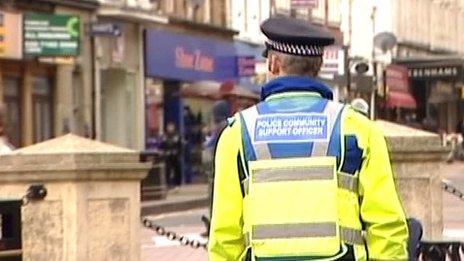Norfolk Police could axe all PCSOs
- Published
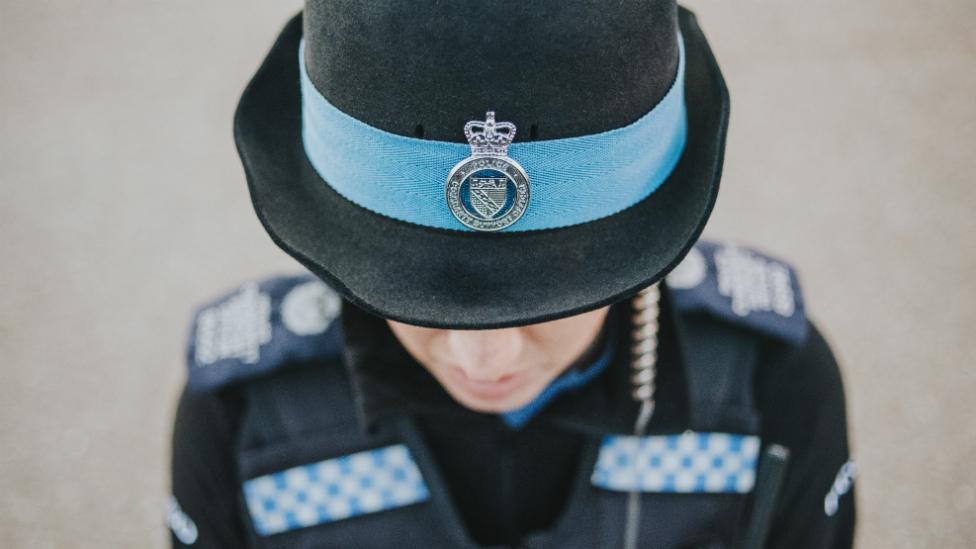
Some PCSOs will take on new roles within the force
A police force could be the first to axe all of its community support officers amid falling budgets and an "unparalleled growth in complex crime".
Norfolk Constabulary will scrap 150 PCSOs if its proposals are approved.
Chief Constable Simon Bailey said "an average police constable" costs only slightly more to employ and would be more useful in "high risk, high harm" cases.
Unison official Caren Reeves said it was "a life-altering day" for Norfolk.
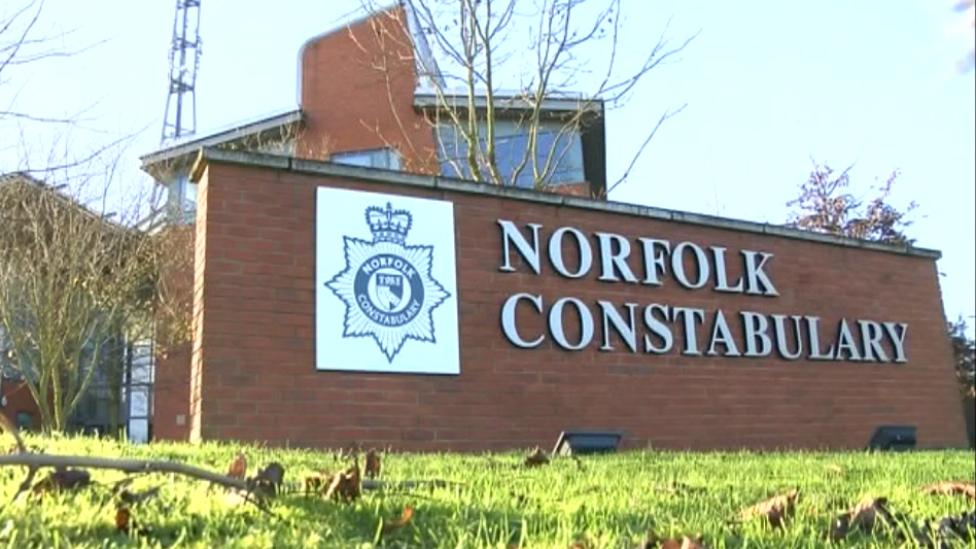
Excluding PCSOs, Norfolk Police employs 1,462 officers and 1,065 civilians
The news comes as the Office for National Statistics said the numbers of crimes recorded annually in England and Wales had risen by 13%.
With the £1.6m saved by ditching PCSOs, the chief constable is proposing to appoint an extra 81 officers and 16 staff members.
Seven front counter services and seven police stations would also be shut under the plans.
Mr Bailey said the "radical" measures came at a time when the police service was facing "unparalleled growth in complex crime" alongside "reduced policing budgets".
He said the force had seen a large increase over the past three years of serious crimes such as "rape, sexual offences, adult and child abuse, indecent images, drugs and serious violence as well as cyber crime".
'Tough decision'
He said they were "high risk, high harm" cases and needed "a workforce that is able to deal with that".
Mr Bailey added: "When you compare the cost of a PCSO, and the average cost of a PC, there's only a difference of £1,800.
"Police officers are fully flexible, fully warranted powers, and I'm able to do a lot more with them than I am with my PCSOs, so it's a tough decision."

A thinning blue line?
PCSOs were first introduced in England and Wales in 2002 to tackle the fear of crime and provide back-up to forces.
They do not have powers of arrest, cannot interview prisoners or carry out the high-risk tasks of police officers.
They can give someone a fixed-penalty notice, for instance for littering, demand the name and address of someone accused of being anti-social, and take alcohol off a person aged under 18.
They can also provide support at special events, direct traffic and make house-to-house inquiries.
Some critics of the role have previously described them as "plastic policemen" because they do not have as many powers as PCs.
The number of PCSOs in England and Wales has been in decline since 2010, when there were 16,918.
By March 2017 there were 10,213.
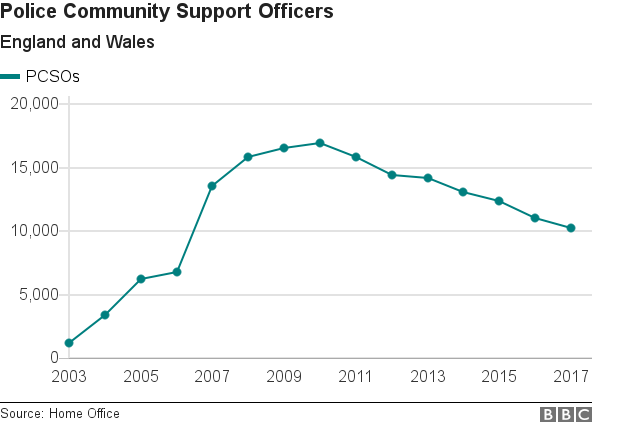
Norfolk has seen one of the biggest declines in PCSOs, a fall of 46%, from 275 in 2010, to 149 as of March 2017, but it is Essex that has seen the biggest drop, down 78% from 445 to 96.
London's two forces, the Metropolitan Police and City of London Police, saw a combined fall of 69%.
The Home Office figures are "full-time equivalent" and will count two or more part time PCSOs as one full time officer.
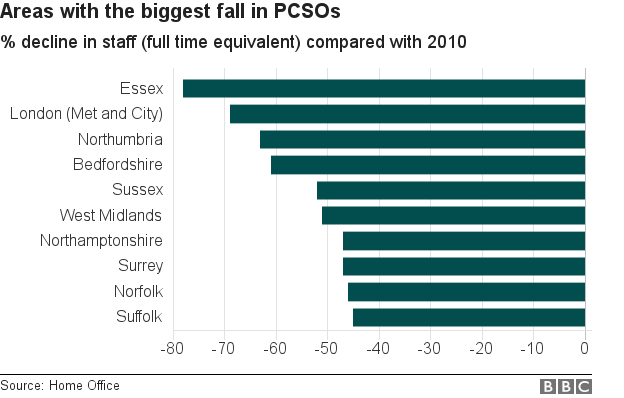
This comes alongside a decline in the number of police officers from 144,273 in 2009 to 123,507 in 2017.

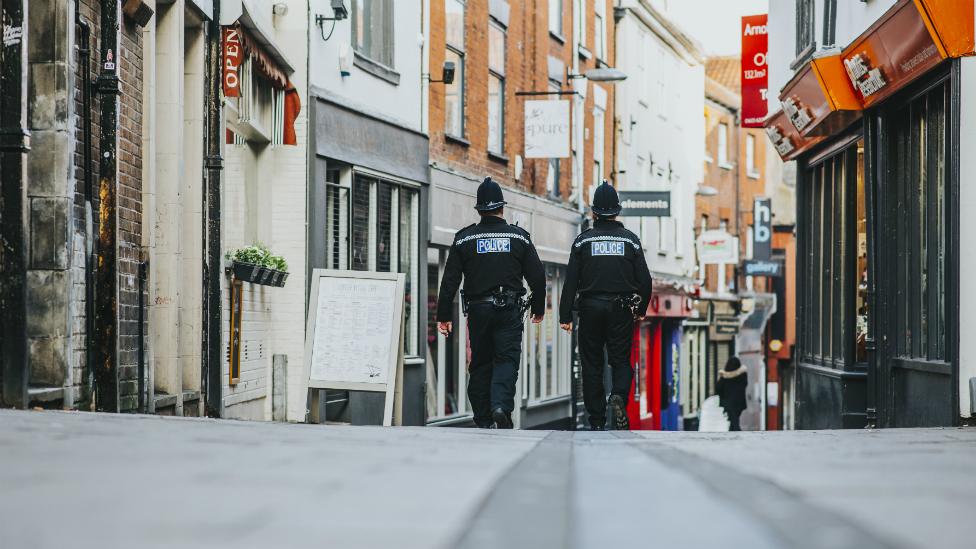
Ms Reeves, branch secretary of Norfolk Police Union, said: "I believe these losses are a direct result of the ongoing unreasonable and insurmountable government cuts to police budgets.
"Not only is this a life-altering day for my members, my colleagues and their families, but also for the good people of Norfolk and the visitors to our safe and beautiful county."
Chairman of the Police Federation, Andy Symonds, said he feared the PCSO workload would transfer to officers left behind and there would also be an impact from the length of time it took to train a police officer.
There will now be a 45-day formal staff consultation on the proposals.
- Published19 October 2017
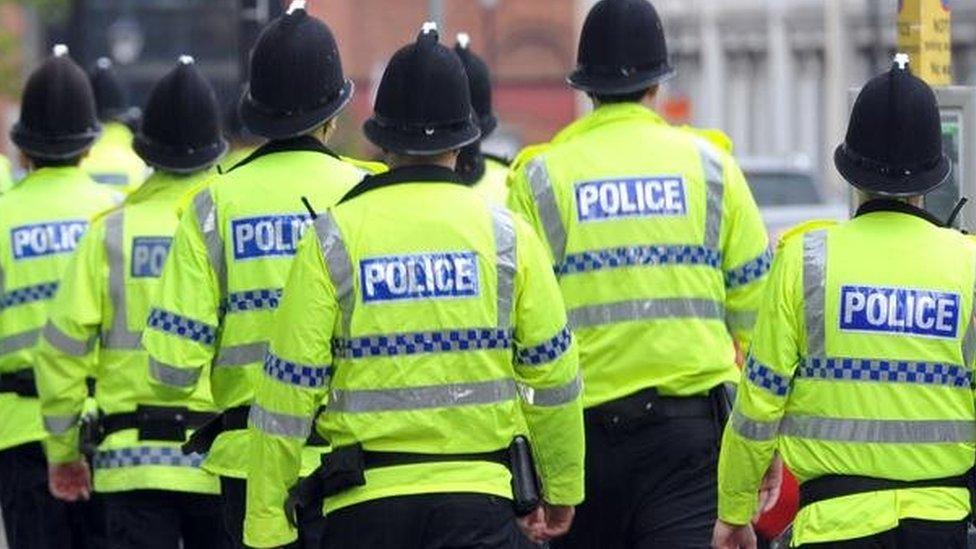
- Published13 April 2012
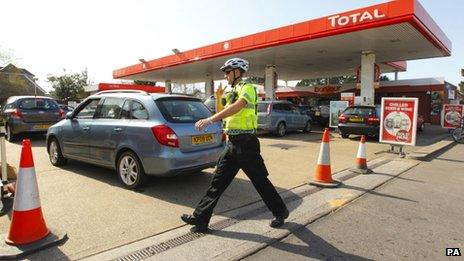
- Published23 October 2012
